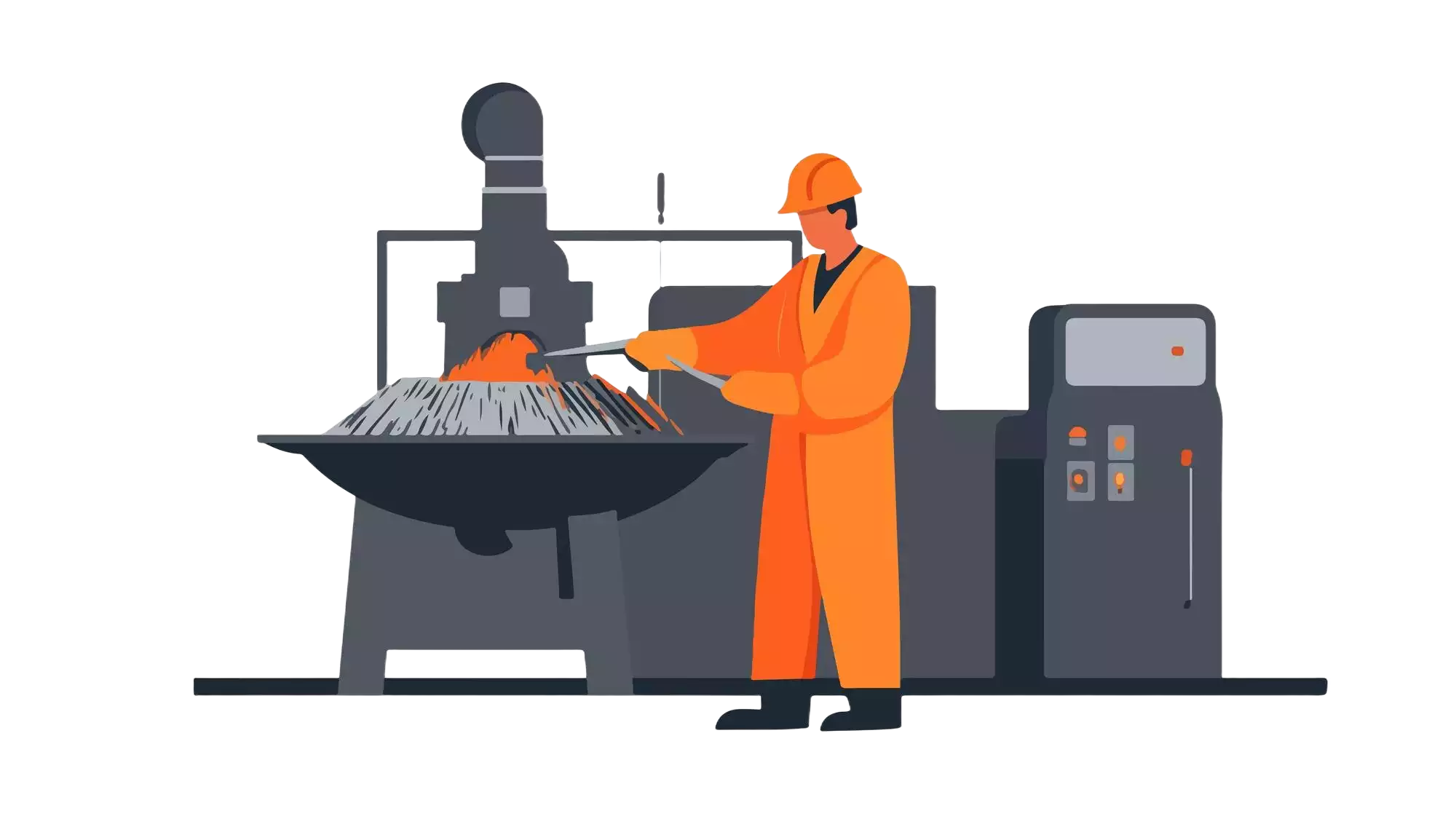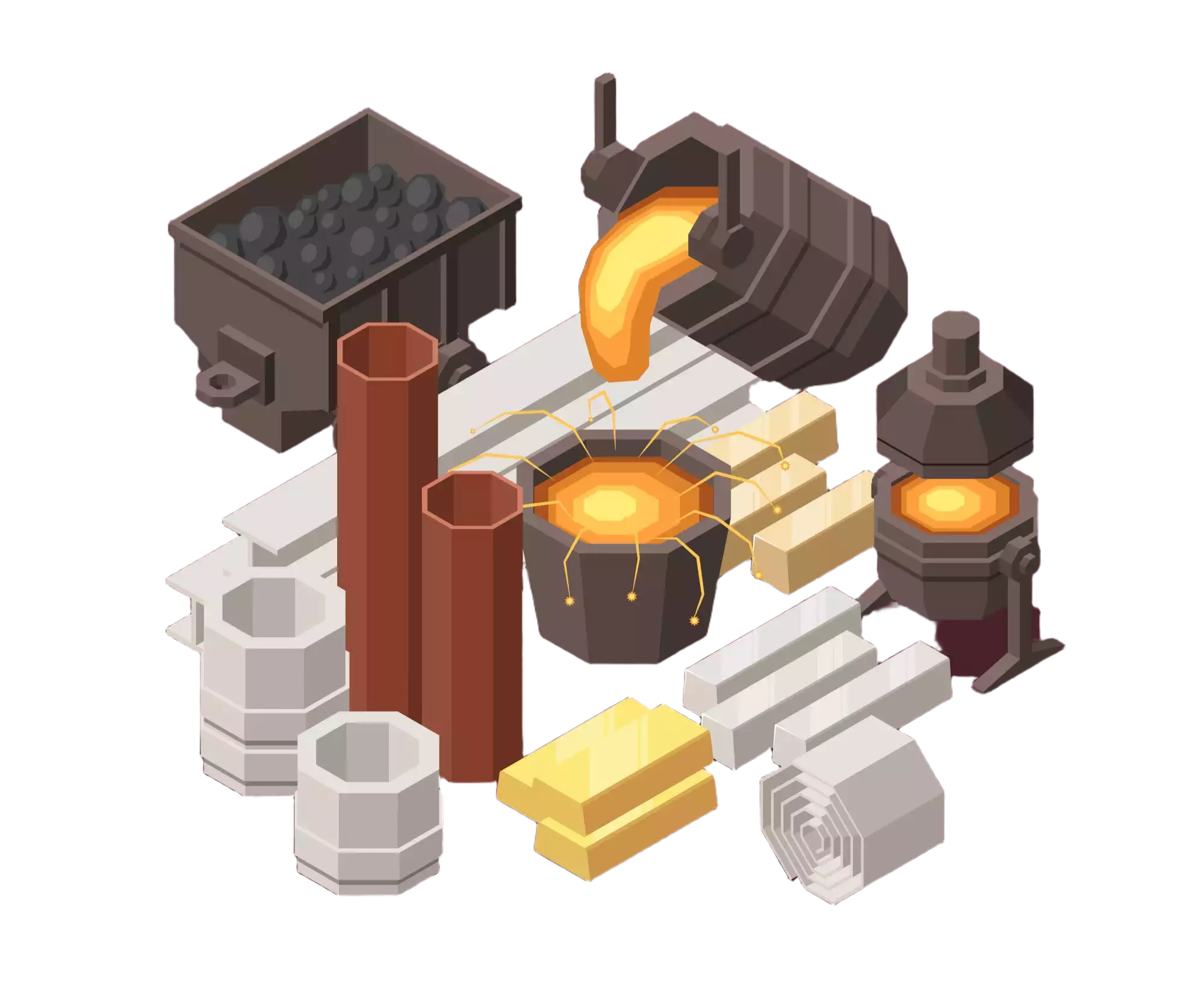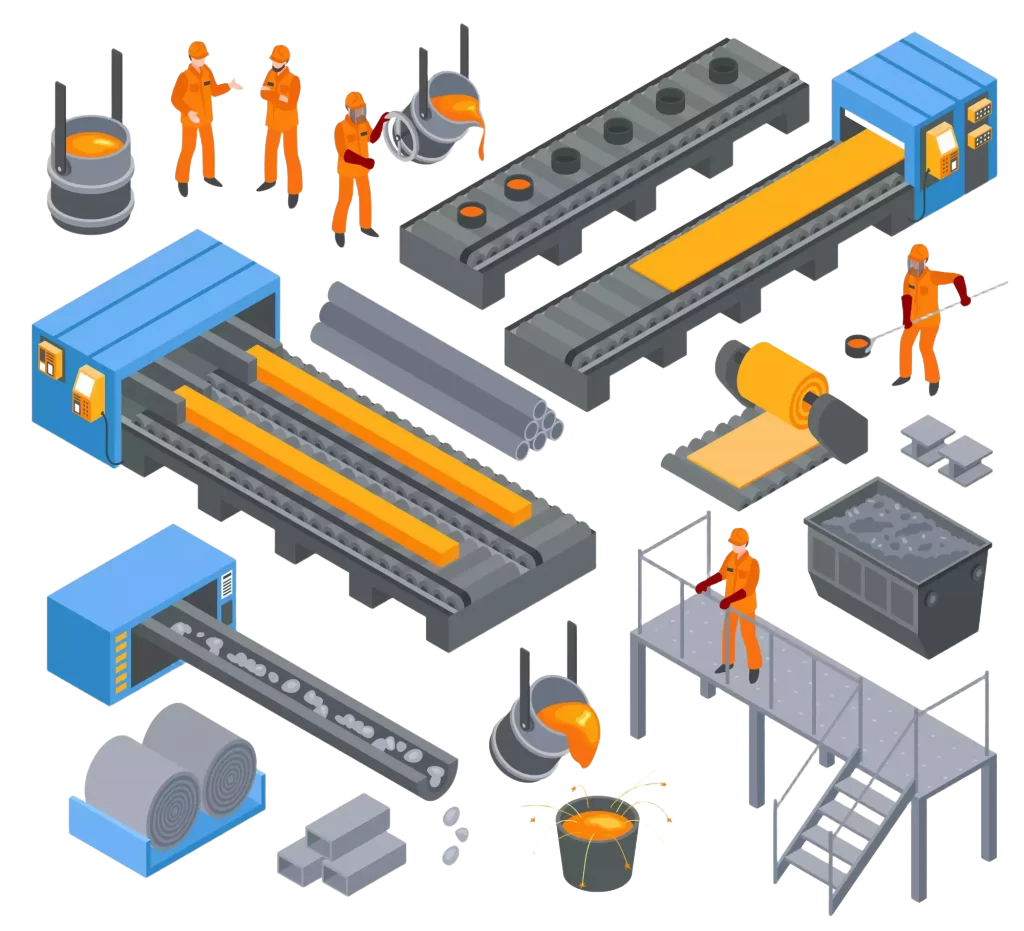Die Casting
What is Die Casting ?
Die casting is a metal casting process that involves injecting molten metal into a mold cavity under high pressure. Once the metal cools and solidifies, the mold opens to release the finished part. This process is highly precise and capable of producing intricate parts.


Key Features
High Precision
It can produce parts with high accuracy and smooth surfaces. (3erp.com)
Fast Production Speed
The process is rapid and ideal for mass production. (xometry.pro)
Cost-effective
It is suitable for manufacturing parts with complex geometries and high precision.
How Does Die Casting Work?
- Melting the Metal: The metal is melted in a furnace until it reaches a liquid state.
- Injection of Metal: The molten metal is injected into the mold cavity under high pressure.
- Cooling and Solidification: The metal cools and solidifies inside the mold.
- Ejection of the Part: The mold opens, and the finished part is ejected.
Types of Die Casting
- Hot-Chamber Die Casting: Suitable for metals with low melting points, such as zinc and tin.
- Cold-Chamber Die Casting: Used for metals with higher melting points, such as aluminum and magnesium.
Materials Used in Die Casting
- Aluminum: Lightweight, durable, and resistant to corrosion.
- Zinc: Strong and resistant to corrosion.
- Magnesium: The lightest metal used in die casting.
Advantages of Die Casting
- High Precision: Capable of producing parts with fine details and smooth surfaces.
- Fast Production: Quick turnaround, ideal for high-volume production.
- Cost-Effective: Particularly suitable for mass production of complex parts.
Applications of Die Casting
- Automotive Industry: Produces engine parts and structural components for vehicles.
- Electronics Industry: Produces cases and internal parts for electronic devices.
- Aerospace Industry: Produces high-precision parts for aircraft and spacecraft.
The Future of Die Casting
Die casting is expected to evolve with advancements in materials science and manufacturing technology, such as the use of composite materials and more environmentally-friendly processes.

7 Tips for Choosing an Die Casting Service
Experience and Expertise
- Choose a provider with experience and expertise in your industry.
Production Capabilities
- Check if the provider can handle complex parts with high precision.
Quality Control
- Ensure the provider has a stringent quality control process.
Technology and Equipment
- Look for a provider with modern technology and equipment.
Production Flexibility
- Check for the provider’s ability to adjust production to your needs.
Design Support
- Ensure the provider can offer design assistance and consultation.
Cost-effectiveness
- Compare pricing to ensure the best balance of quality and cost.
Choosing the right die casting service will ensure your project’s success with high-quality parts at an optimal cost.

We connect buyers with trusted suppliers to ensure you get the right products for your business needs.
IndustrialX is the ultimate one-stop marketplace for businesses in the automotive and industrial sectors, providing a seamless way to find, compare, and purchase high-quality industrial equipment.
Manufacturing Services
Manufacturing Capabilities to Meet Your Needs
Customer base
manufacturers
CNC Machining
A precise manufacturing process using computerized machines to cut, shape, and finish materials with high accuracy.
Read more3D Printing
A process that creates three-dimensional objects layer by layer from digital models, enabling rapid prototyping and customization.
Read moreSheet Metal
The process of shaping metal sheets into desired forms using cutting, bending, and stamping techniques.
Read moreInjection Molding
A manufacturing process where molten material is injected into a mold to create parts with high precision and detail.
Read moreDie Casting
A process where molten metal is forced into a mold to create durable and complex parts with precise detail.
Read moreAssembly Products
The process of putting together different components to create a finished product, ensuring functionality and quality.
Read more
